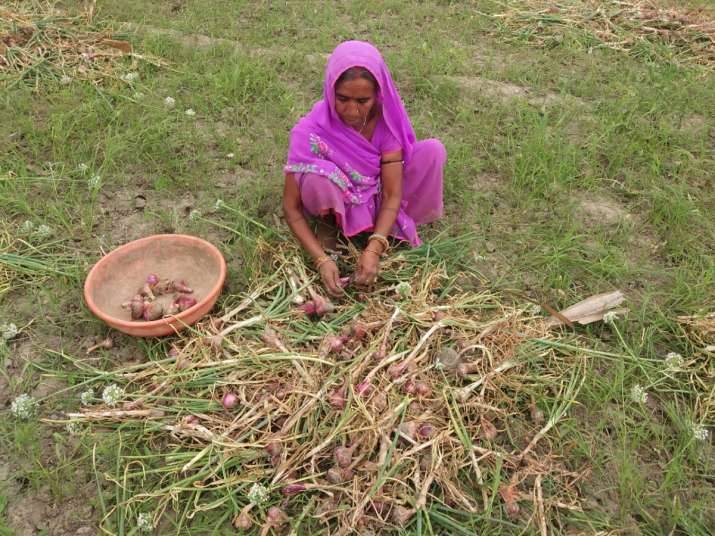SumArth recently launched a project named “Magical Mushroom” whose main focus was giving a good livelihood, nutrition, and making the women farmers self-dependent with minimal investment.

SumArth, a for-purpose initiative is dedicatedly working on the feminization of agriculture in Bihar. It is a non-profit social enterprise headquartered in Gaya which supports women farmers in their economic growth by providing 360-degree solutions, from crop planning to ensured market linkage. SumArth works primarily in the Gaya district which is one of the largest Mahadalit populated districts of India.
SumArth recently launched a project named “Magical Mushroom” whose main focus was giving a good livelihood, nutrition, and making the women farmers self-dependent with minimal investment. Talking about mushrooms, it can be grown in a closed area that is not exposed to sunlight. It is grown in off-farm conditions under a controlled environment. This project ensures daily income to farmers and provides a minimum of double return within 45 days. Also, Mushroom’s production is devoid of big land or space. It’s primarily grown within the household or sometimes in a low-cost hut. Even many laborers are not required, a single person can take care of the production process. Ruby Devi, a female farmer said, “I find it very easy to produce mushroom at my home after completing all my household chores and make good money.”
The Co-founder of SumArth, Prabhat Kumar said, “In the Naxal affected and rural areas, primarily men do the agricultural activities at the field as women hesitate to go to the field because of social and security reasons but Mushroom can be grown inside house, therefore it benefits the women farmers to great extent.
To encourage women empowerment, SumArth launched this project for the betterment of Dalit and marginalized women farmers. This project came up as a boon to women farmers as it did not require big farm machinery, which is generally not female-friendly. Also, since it is grown inside the house, it helps women in taking care of it at their convenience. This project makes the women the sole stakeholder and the prime decision-maker which encourages them to work for themselves and feel confident. SumArth has even trained and educated more than 500 women farmers for this project to inculcate confidence to face the community and its requirements. Another female farmer Anita Kumari said, “I was given training before starting the production and it benefited me in various manners.”
Post production, SumArth even provides the women farmers with local markets to sell their products and earn from it. On average a woman farmer earns 10-12k with a small investment of 4-5k. They earn this amount in just 30-45 days in one go. Another Co-founder, Mayank Jain said, “This project would benefit the women farmers in three ways- economically by selling of the mushrooms, socially by coming up as a cooperative/cluster and ecologically by utilising the spent mushroom substrate as compost. Mushroom also gives nutritional security to them.”
In the “Magical Mushroom” project, SumArth also introduced their women farmers to agricultural technologies which reduced the gender gap in agricultural productivity and food security. In this project, women, farmers were taught to use laser equipment to detect the room temperature and automatic sprinkler for watering the mushroom bags. Also, small videos were shown to them on various stages and interventions of mushrooms. These technologies and videos ease the women farmers’ work along with allowing them to explore new technology.
The fundamental drivers of sustainable development and economic growth are the people themselves but if only one gender is encouraged to participate in any activity, the talent pool simply gets halved. Team SumArth says, “Given equal access to productive resources and services, women are as efficient as men and would achieve the same yields. Reducing the gender gap is very essential in order to accelerate the growth in the agriculture sector. According to the Food and Agricultural Organisation, if women had the same access to productive resources the same as men, they could increase yields on their farms by 20-30%.
To make India a progressive country, it is essential to work on rural India – where agriculture forms the backbone. We cannot afford to ignore that if we want the second Green Revolution in India, we need to focus on our country’s women farmers.
Article Credit: indiatvnews
